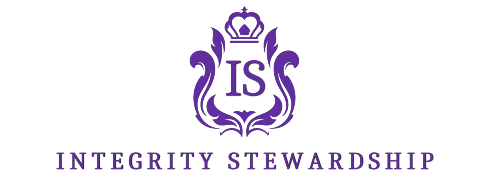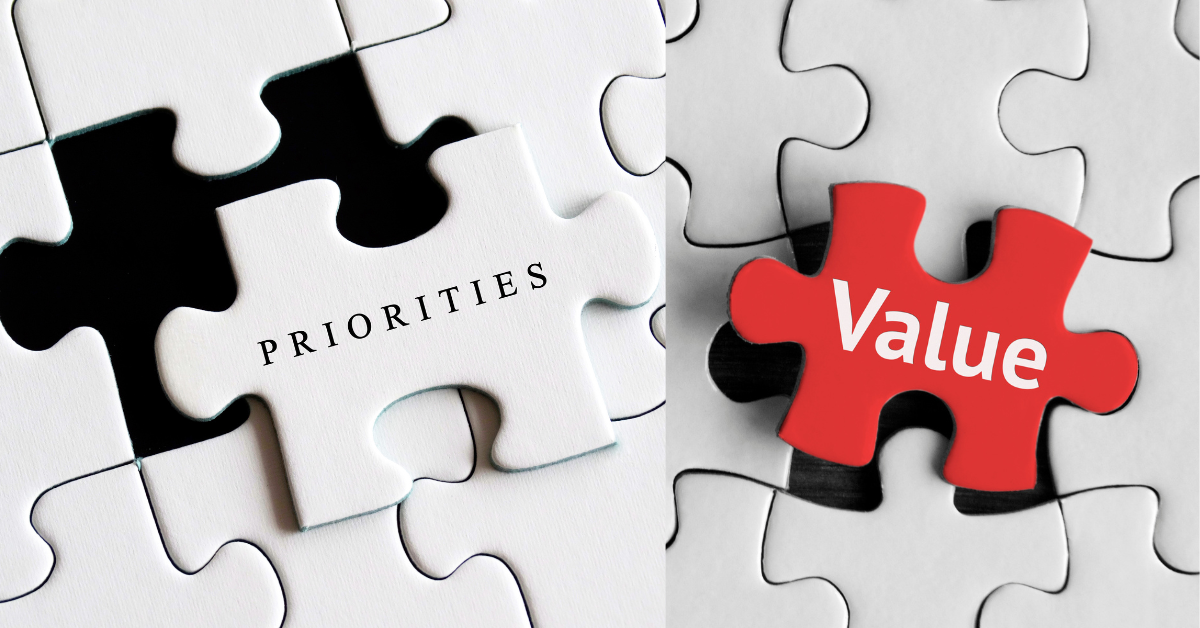When most of your money goes toward providing what’s most important to you, you tend to live a more fulfilled life and feel more satisfied with the way you spend your money. It’s also easier to stick to your personal finance plan when its objectives are to get you what you really want out of life.
Because life priorities can differ drastically from person to person, it’s important to be aware of your own personal values.
What do you really want from life? What kind of lifestyle do you seek? What are your life goals? Does your spending coincide with those things?
If you don’t know want you want, how can you ever expect to achieve it? If you haven’t determined how you want to live, how can that particular lifestyle ever be manifested? If you have set any goals (life goals or financial goals), how will you ever know if you have accomplished those goals? It is so important to plan ahead, to make sure that your actions are in alignment with your plans in order for you to be successful in life. Otherwise, you are just accepting whatever should come your way. You are not making in choices so life chooses for you and that is not always in your favor. It is said if you really want to know where someone’s heart is just, follow the money. It is my desire that you live in your best and highest self. So if you are ready to be make sure that your spending is in alignment with your values and priorities, take the action.
Follow these steps to help determine if your finances are in alignment with your priorities:
- List your priorities. You might notice different levels of priorities as you write yours down. Things like having a place to live and plenty of food to eat are your basic priorities.
- However, you’ll most likely include some “necessary” priorities to ensure a strong future for yourself and your family members, like maintaining good health or providing your kids with a good education.
- Also, list things you love to do that seem more like “luxury” priorities, like reading, traveling or playing golf. These might be on a lower level of priority than your basic priorities, but, nevertheless, they’re still important to you, so include these as well.
- Now, write down how you spend most of your money. Where does it go? Although you may get annoyed that much of your money goes toward the mortgage or paying rent, the fact is that we all require a roof over our heads.
- You might consider the type, size and expense of your home and whether you’ve gone too far in terms of house expenses. If so, where you live and the mortgage/rent payments might require re-evaluation on your part.
- Maybe a good portion of your dollars goes to other necessary expenses like groceries and paying your utilities. But what else do you spend your money on?
- Do you play slot machines on Saturday for fun and end up losing money? Maybe you love to shop and use shopping as a pastime that ends up costing quite a bit. Perhaps you spend $20 a week on coffee and snacks or $30 a week having drinks with your friends.
- Thoughtfully consider where your money goes from week to week and write it down.
- Finally, compare your lists. Take a look at your first list, the one with your priorities. Ponder each item; does every item accurately reflect what’s important to you? Now examine your second list, the one showing where your money goes. Do the lists appear connected? Does your money go mostly toward your priorities?
- You might be shocked to learn that, even though you listed certain priorities like providing a good education for your children or having a comfortable home, you’re spending $100 plus a week on eating out instead of starting an education fund.
- What if you listed reading as one of your priorities, yet you spend nearly $100 a month on cable television you don’t watch much? Or if you do, it’s the same 3 channels that you’d actually get on a basic cable plan costing less than $40 a month.
- In either case, you’ve got to ask yourself, “What are my true and real priorities” and “Why aren’t I putting my money toward the things that matter most to me?”
Now, that we have identified our priorities, let’s look a little deeper into how we are spending our money? Do you control money or is it controlling you? Do You Struggle with Compulsive Spending?
Compulsive spending involves feeling compelled to spend money on items you don’t really want or need. In some cases, you might spend money on items you already have plenty of. For example, even though you love getting new shoes, if you already have 20 pairs of them, it’s probably safe to say you don’t need another.
Signs You May Be Spending Compulsively
Do any of these signs feel familiar?
- You spend all your money as soon as you get it. On payday, you might pay some bills. Then, any money you have left over, you happily go out to spend. Maybe there’s a big clearance on home improvement tools or the dress boutique is having a going out of business sale. Whatever the case, you deplete the monies you obtain.
- You use charge cards to buy items when you have no money. A financially dangerous habit, using charge cards to keep buying once the cash is gone can devastate your money and living situations.
- You shop when you feel moody, anxious, or upset in some way. Your feelings largely depend on whether you’re shopping, since shopping comforts you during any stress.
- You feel your spending is out of control. No matter what you do, you just can’t stop.
- Your shopping causes difficulties in your life. You perhaps have arguments with your spouse about all the money you spend. Sometimes, you aren’t honest about what you spent.
How to Stop
If you experience even one of these points above, there’s a real possibility you’re dealing with compulsive spending.
Use these strategies to quell your urges to spend:
- Make a contract with yourself to stop spending. Write it out and sign it. Find the confidence to change your direction.
- For now, remove credit cards from your wallet. If you believe you have the fortitude to use a credit card only for emergencies, keep only 1 card in your billfold. Pay cash for everything. Budget your daily cash amount and when you run out of cash, you’re done spending (on anything) for the rest of the day.
- Contemplate your money situation. How long has it been going on? How did you get started spending compulsively? Are there specific situations that trigger you to shop now? How do you feel when spending money? Work hard to gain an understanding of your drive to spend compulsively.
- Charge yourself for spending. Every time you spend money for something other than groceries, gas, or utility bills, pay yourself $20.00. This means you must put back the $20.00 to have ready when the bill for the frivolous items comes in.
- Write down all expenditures. When you see on paper the amount you spent and what you spent it for, it somehow becomes real. In a sense, you’re forcing yourself to think about and process what you’re doing.
- Examine the possessions you already have. Do you like and use all of them? If you have several debts due to your past credit card spending, think about how you can return or re-sell some of the items you’ve purchased haphazardly. Then, use that money to pay off the debts.
- Recognize spending money doesn’t buy you happiness. Be honest with yourself: has surrounding yourself with stuff you bought with your hard-earned money provided you the life you truly seek?
- Empower yourself by becoming more conscious about how spending affects your life. List the ways your life would change if you had no debt and used money wisely.
- Make contact with the Debtors Anonymous group in your area. Asking for help is the wise thing to do whenever you believe your spending is out of control. Going to Debtors Anonymous won’t cost a dime and can provide support for you to get your life back on track.
If you’ve identified yourself as one who spends compulsively, you’ve taken a first step in the right direction. Making a contract, avoiding credit cards, charging yourself for spending, keeping track of expenditures, and returning or re-selling unused purchased items will help you get a grip.
Also, listing how your life will change when you stop compulsive spending, realizing spending doesn’t make you happy, will set you on a positive path to real emotional and financial freedom.
Having great clarity in knowing your priorities and being conscious of how you spend your money will help you routinely place money toward what’s most important to you. Then, you’ll like the way you feel about your finances as funds become available for your favorite things.
I hope this article was helpful to you. If you are ready to imagine a life where you are free to live the life that you dream of, get my eBook: “Change and Master Your Money Beliefs: The Secret to Healing Your Money and Improving Your Financial Health.” You can get it now, CLICK HERE!

